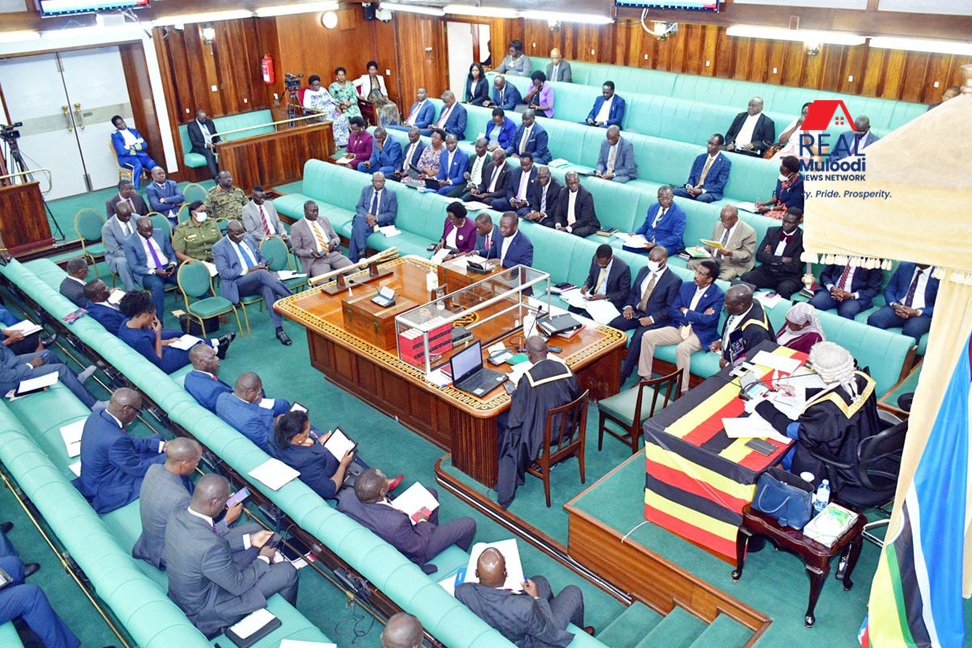UGANDA, Kampala | Real Muloodi News | In a significant development, Parliament has passed the Financial Institutions (Amendment) Bill, 2023, which, upon President Museveni’s signature, will enable borrowers to access interest-free loans through Islamic Banking.
This move comes after more than a decade of plans to introduce Islamic Banking in Uganda, a system in which lenders and borrowers share profits and losses based on pre-agreed terms.
The passing of the bill was hailed as a gift to Muslims in Uganda on the occasion of Idd-ul-Aduha, also known as the feast of sacrifice.
The Uganda Bankers’ Association (UBA), the apex body of financial institutions in the country, has yet to comment on the potential implications of the new Act on the financial landscape.
The Executive Director of UBA, Mr Wilbrod Owor, was unable to provide immediate insight.
However, the impact of Islamic Banking on operations and tax collections has raised concerns.
The Uganda Law Society (ULS) has warned that rushed enactment of the Act could have unintended consequences, as the Uganda Revenue Authority (URA) may not be adequately prepared to handle tax collection under the new system.
Additionally, various financial sector players require time to understand the nuances of Islamic Banking.
Cephas Birungyi, a Partner at Birungyi, Barata & Associates, representing the ULS, urged caution in the implementation of Islamic Banking.
He argued that Uganda lacks the necessary infrastructure and trained personnel to support the rollout of this banking system.
According to Birungyi, the staff at URA has not been trained in Sharia Law and Sharia law taxation, which could present challenges in collecting taxes under the new system.
He also highlighted the need for proper training and understanding of Sharia law principles among practitioners in the financial sector.
Birungyi suggested that rather than amending current laws, a new bill specifically catering to the Islamic Banking sector should be introduced.
Islamic Banking is a financial system based on the principles of Sharia law. It prohibits usury (lending money at high-interest rates), speculation, and gambling.
Unlike conventional banking, where interest is charged, Islamic Banking operates on the premise that money in itself has no intrinsic value.
Instead, it should be used to generate income through trade or investment in tangible assets. Under Islamic Banking, banks and their customers become partners and share profits or losses based on a predetermined ratio.
The system promotes transparency, full disclosure, and participation in transactions that do not harm society.
During the legislative process, Member of Parliament Gerald Nangoli expressed frustration over the limited time given to scrutinise the Financial Institutions (Amendment) Bill and other related bills.
However, despite concerns raised, Parliament passed the bills, including those on Value Added Tax, Excise Duty, and Stamp Duty, while deferring the consideration of the Income Tax (Amendment) Bill to a later date.
The controversy surrounding definitions of interest and return on investment led to the postponement of the Income Tax bill debate.
The Committee on Finance recommended the establishment of Institutional Shari’ah Advisory Boards at banks conducting Islamic financial businesses, as well as a Central Shari’ah Advisory Council at the Bank of Uganda (BoU).
However, the committee noted that the best global practices in other Islamic countries did not include a Central Shari’ah Advisory Council for supervision.
It was suggested that the Bank of Uganda Act be amended to create a sub-department for Islamic Banking, as the existing structures within the Bank of Uganda could accommodate this addition.
The committee also emphasised the importance of seeking guidance from the Islamic Financial Services Board (IFSB) to regulate the nascent industry until Uganda has built sufficient capacity to re-enact it in the law.
Islamic Banks mobilise customer deposits and provide financing arrangements through various types of financial contracts.
These contracts include profit-sharing investment accounts, non-profit-bearing deposit accounts, equity partnerships, and partnership agreements.
Islamic Banks are guided by moral and ethical principles derived from Sharia law, prohibiting the financing of harmful activities such as casinos and nightclubs.
Transactions within Islamic Banking adhere to strict rules against uncertainty, speculation, injustice, or deceit. The system promotes fair and ethical practices in financial transactions.
While concerns have been raised about the readiness of infrastructure and personnel, it is expected that the necessary regulations, training, and capacity building will be put in place to support the new banking system.
With careful planning and implementation, Islamic Banking has the potential to offer an alternative financial system that aligns with the ethical and moral values of the Muslim community in Uganda.
READ MORE LIKE THIS:
Need Fast Cash to Finish Your Home Construction? Consider Online Lending



